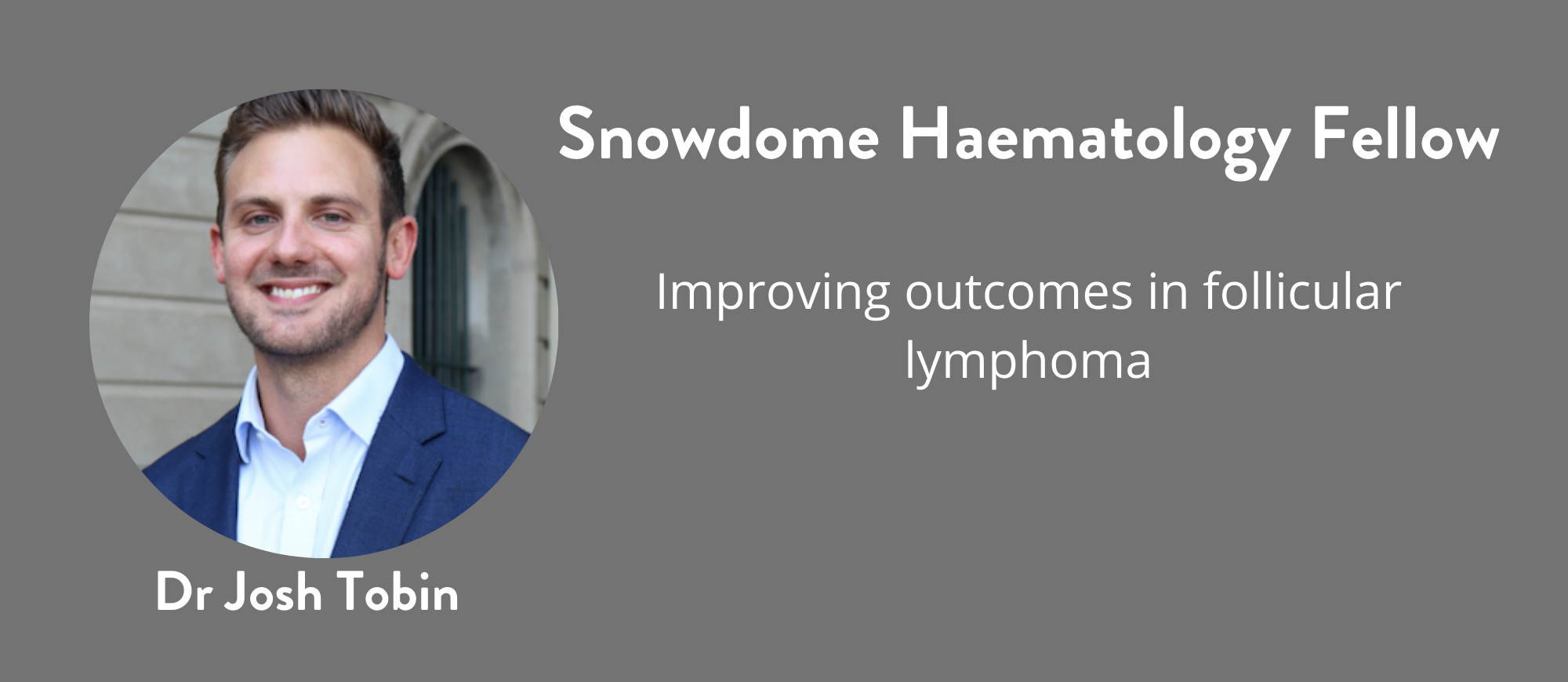Addressing the unmet need to better identify high-risk follicular lymphoma patients

Lymphoma is a blood cancer that develops when lymphocytes, part of your immune system, grow out of control. The problem with lymphoma is that cancer cells use the immune response to give them an extra advantage to go undetected and continue to replicate. The successful immune evasion by cancer cells means that the body is not able to completely eliminate the cancer, hence the incurable nature of indolent lymphomas like follicular lymphoma.
Dr Josh Tobin has been awarded the 2022 Snowdome Haematology Fellowship and his research project will investigate how cancer cells interact with the immune system. His goal is to be able to detect lymphoma that is evading the immune response because we know this cancer is more likely to return quickly after treatment. At present Josh can achieve this in his research lab using specialised equipment. He aims to find a molecular marker that will identify which follicular lymphoma is evading the immune system and develop a test that is applicable and reproducible within diagnostic labs using current technologies. This test will enable clinicians to immediately identify if a follicular lymphoma patient has a cancer that is likely to return quickly after chemotherapy treatment, enhancing prognosis and diagnosis.
Josh will be looking at follicular lymphoma patients who have been treated with chemotherapy in Australia over the last 10 years and comparing them to patients in the US who have been treated with immunotherapy as first line treatment. He will then try to identify whether patients that carry a marker indicating they have a lymphoma that is likely to return quickly, did poorly in the group treated with chemotherapy and respond better in the group treated with immunotherapy. It is believed that a better response to treatment will result if you treat poor immune response patients with an immunotherapy that boosts their immune system to better fight the cancer.
Most patients with lymphoma respond well to chemotherapy. As a result, it is first line treatment in Australia. However, outcomes can be improved if we can identify and demonstrate that patients with a certain molecular marker do better when treated with immunotherapy as their first treatment.
Josh commented “Ultimately, this project addresses the unmet need to better identify high-risk follicular lymphoma patients and allow the delivery of precision therapies that match the right lymphoma patient with the right treatment option.”
We look forward to bringing you more news about Josh’s research and fellowship in the coming months.
